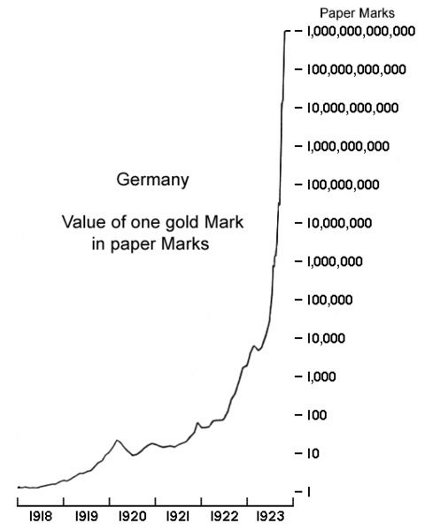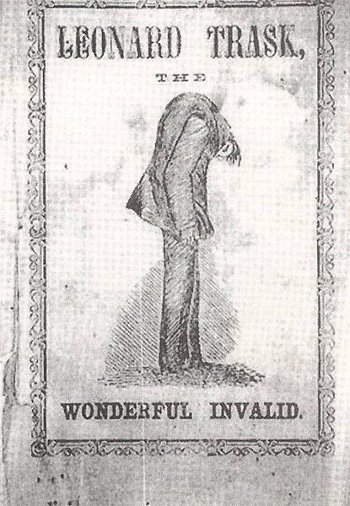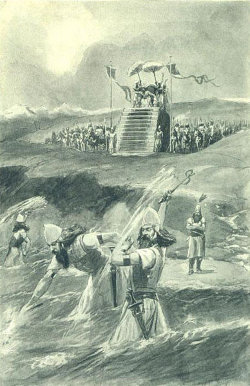
After the San Francisco earthquake, James Jones wrote this letter on a detachable shirt collar and mailed it without postage to his son and daughter-in-law in New York:
Dear Wayland and Gussie: All safe but awfully scared. Frisco and hell went into partnership and hell came out winner — got away with the sack. Draw a line from Ft Mason along Van Ness Ave. to Market St., out Market to Dolores to Twentieth, thence to Harrison, 16th & Portrero Ave. R.R. Ave. to Channel St. and bay. Nearly everything east and north of this boundary line gone, and several blocks west of it, especially in Hayes Valley as far as Octavia St. from Golden Gate Ave. east. Fire is still burning on the northside but is checked in the Mission. I and a band of 40 or 50 volunteers formed a rope and bucket brigade, back-fired Dolores from Market to 19th, pulled down houses and blanketed westside Dolores and won a great victory. More with paper & stamps. James G. Jones. April 21st, 1906.
It was delivered. The post office had resolved to handle “everything, stamped or unstamped, as long as it had an address to which it could be sent,” remembered William F. Burke, secretary to the city postmaster. When he made the rounds of camps, “the wonderful mass of communications that poured into the automobile was a study in the sudden misery that had overtaken the city. Bits of cardboard, cuffs, pieces of wrapping paper, bits of newspapers with an address on the margin, pages of books and sticks of wood all served as a means to let somebody in the outside world know that friends were alive and in need among the ruins.”
At the close of the first day, “95 pouches of letters carrying mail composed of rags and tatters and odds and ends — and burdened with a weight of woe bigger than had ever left the city in a mail sack — were made up for dispatch. … It came to our knowledge later that not one piece of this mail that was properly addressed failed of delivery.”






